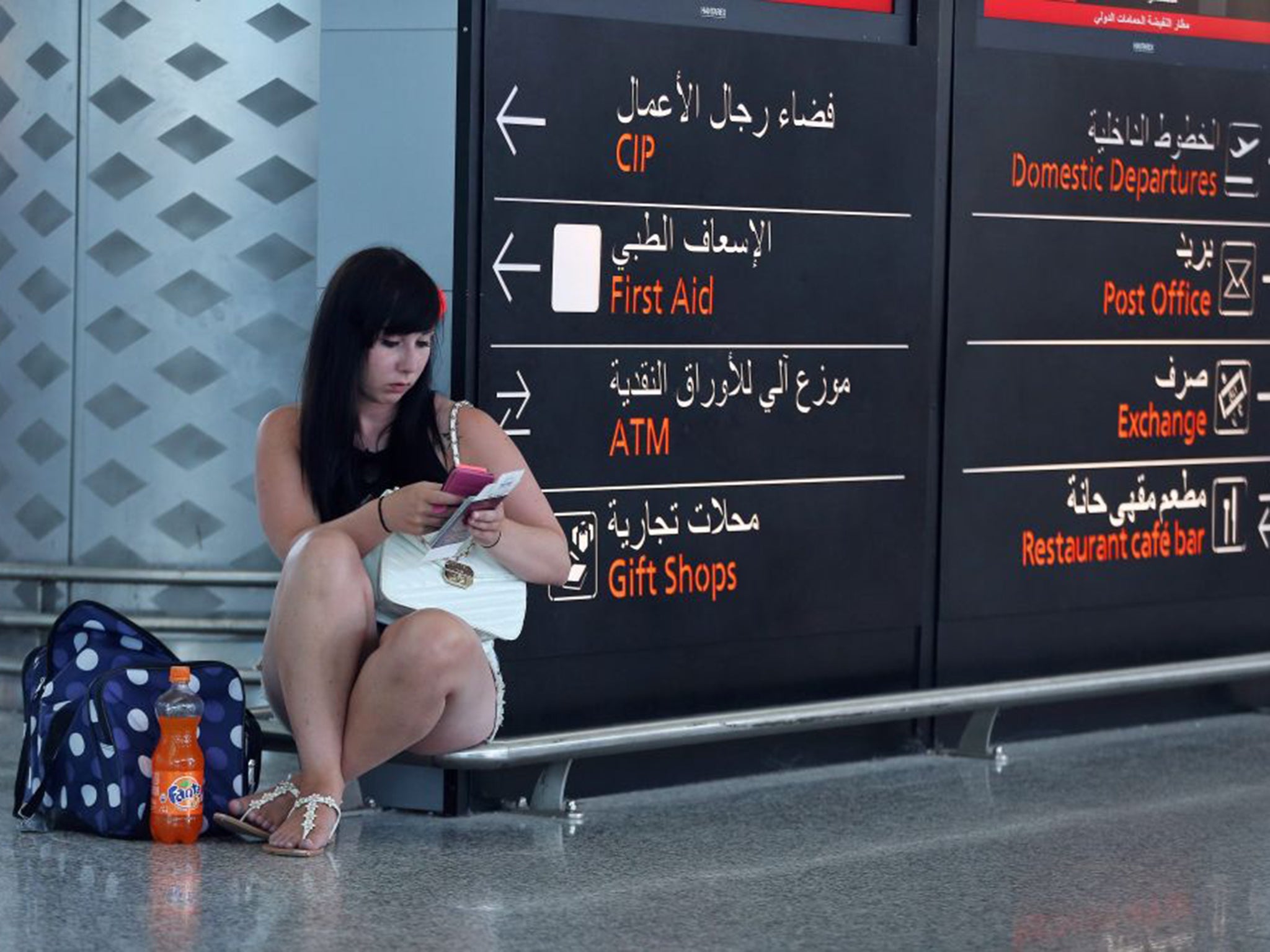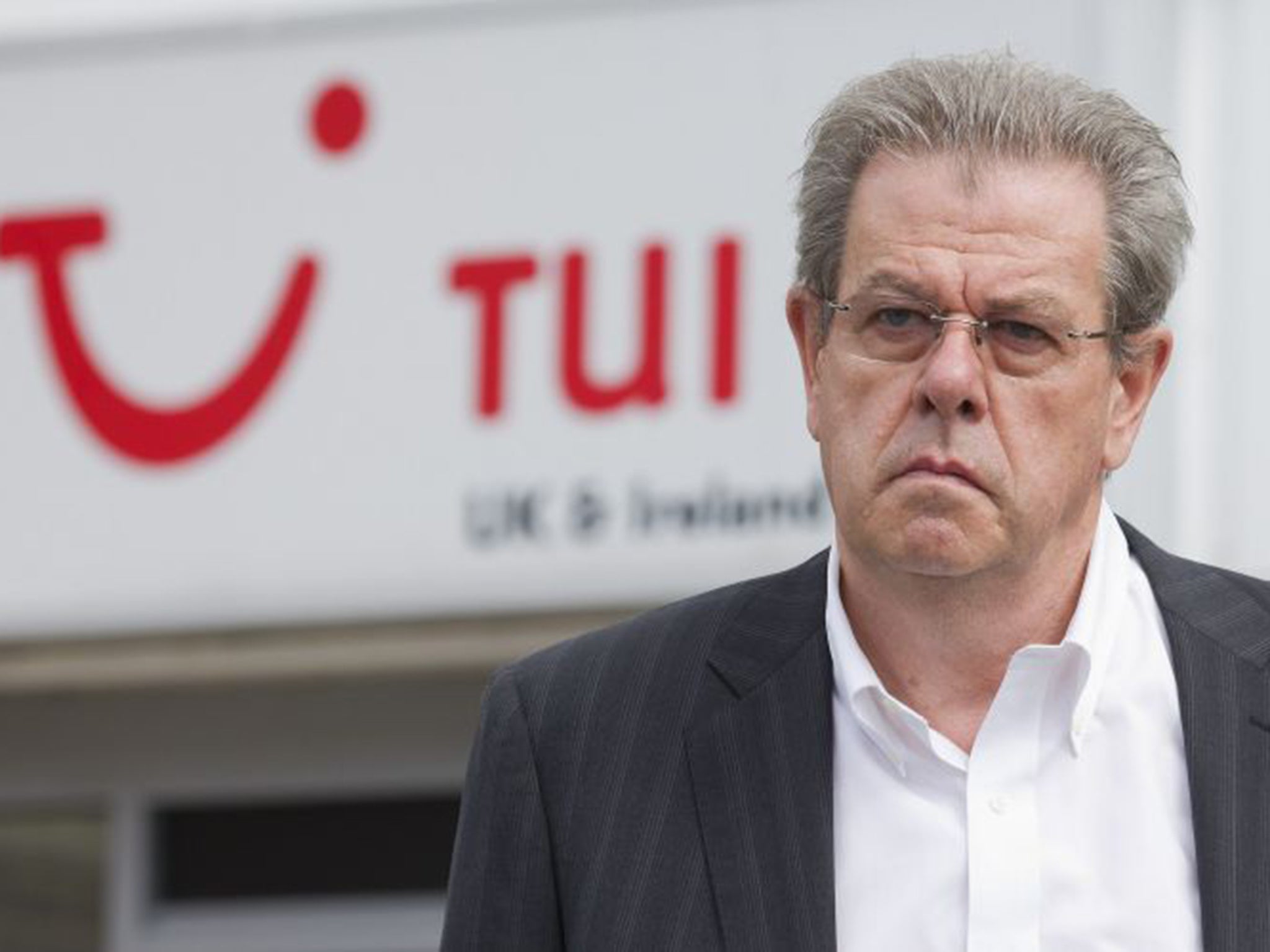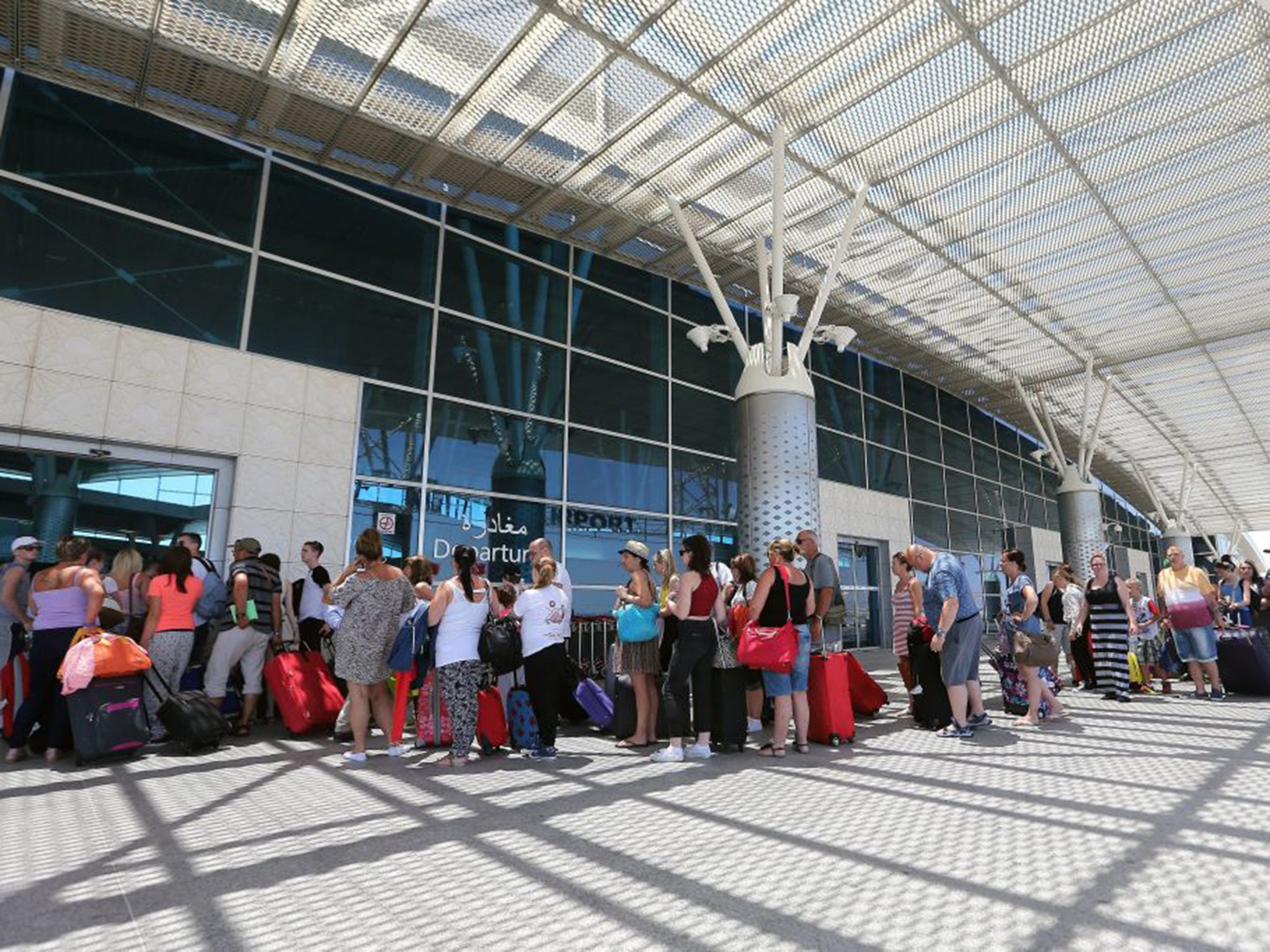Tunisia hotel attack Q&A: What are the options for people booked to travel to Tunisia?
Tour operators are trying to bring back tourists who want to head home early

The horror of a holiday beach turning into a battle zone has raised many questions about Tunisia as a destination - and the possible risks in other holiday locations. The Independent's travel correspondent tackles the key questions asked by readers after the massacre at Sousse on 26 June.
Q Is everyone coming home from Tunisia now?
The big tour operators and airlines are attempting to bring back customers who want to head home early after the attack. Thomson, First Choice and Jet2 have operated extra flights in a bid to repatriate holidaymakers, but reports suggest that there are still several thousand British tourists who may be unable to leave until the date they were due to fly home.
Q What are the options for people booked to travel to Tunisia this summer?
Most tour operators and airlines have offered a refund or the chance to switch alternative destinations to anyone booked to travel imminently to Tunisia. They have cancelled departures to Tunisia for the next few days. When operations resume, travellers booked to travel in the coming month can switch destination or cancel without the normal penalties. Thomson (and its all-inclusive brand, First Choice) and Thomas Cook are allowing free of charge amendments to bookings on holidays to Tunisia until 31 July. Thomson is operating extra flights to Rhodes, Gran Canaria and Cape Verde in order to provide options.
Other holiday companies and airlines have adopted similar commercial policies.

Q And for August onwards?
Between 80,000 and 100,000 British holidaymakers are believed to have holidays booked in Tunisia in August alone. Many of them are discovering that tour operators are imposing normal cancellation conditions for trips from August onwards. That means anyone who cancels at this stage is likely to lose 70 per cent of the cost of the holiday.
There are, however, several possible alternative scenarios, and I urge people holding bookings to Tunisia not to make hasty and expensive decisions. Things should become clearer in the next couple of weeks. These are the possibilities I see:
* Tour operators may secure alternative holidays for August in different destinations, and allow customers to switch without penalty.
* They may decide to relax their normal commercial policies to allow anxious holidaymaker to get full refunds.
* The Foreign Office travel advice may change yet again, and warn against travel to Tunisia.
Q Is it true that German tourists booked with Thomson’s parent company are being offered full refunds for bookings up to mid-September?
Yes. Within hours of the attack, Tui told clients of its German operation:“All the guests who had planned a trip to Tunisia until 15 September may rebook for free or cancel”. But only clients of Tui’s UK operation booked to travel to Tunisia before August may change without penalty. A spokeswoman for Thomson told The Independent: “The situation in Tunisia is fluid and under constant review. Our current priority is supporting the affected customers and their family and friends in resort at this exceptionally difficult time. TUI Germany has made the decision based on its source market needs.”
Sean Tipton of Abta, the travel association, says UK holiday companies rely upon Foreign Office advice: “They are the experts in this area, and they haven’t advised against travel to Tunisia. It’s an unfortunate but inescapable fact that there’s a high threat of terrorism around the world, including the UK. But that doesn’t mean that business grinds to a halt.”
Q What is the current Foreign Office travel advice?
The government’s official advice was revised late on Saturday night. It warns: “Further terrorist attacks in Tunisia, including in tourist resorts, are possible,” and suggests the perpetrators could be “individuals who are unknown to the authorities, and whose actions are inspired by terrorist groups via social media.” It also warns that Tunisia shares a long, leaky border with Libya - a failed state with many weapons, and seen by some as a crucible for Jihadists.
But even after two cold-blooded massacres of tourists to Tunisia in three months, the latest Foreign Office advice stops short of putting the North African nation on the government’s holiday blacklist.
Urging travellers to avoid Tunisia would compel tour operators to evacuate existing tourists and not to send anyone else until the advice changes. It would also invalidate the travel insurance of people who ignore the official advice and go there anyway. And as it would increase the impact of the attack, it wood arguably increase the probability of a repeat.
You can read the Foreign Office advice in full here: bit.ly/TunisiaFO.

Q Is the Foreign Office view supported by other Western governments?
Australia’s foreign ministry warns travellers to Tunisia: “Terrorist groups in the region, which are growing in capability and intent, have declared their intention to increase attacks and kidnappings targeting Westerners.” Its counterpart in Canada says: “The security situation remains fragile. There has been a notable increase in the number of violent acts committed by extremists since early 2013. Although these excesses are widely condemned by the authorities, enforcing the law does not always seem possible.”
Q Will I be able to claim on travel insurance if I cancel?
No. “Disinclination to travel” is not sufficient grounds for a claim, nor indeed for recouping the holiday cost from a credit-card company.
Q Does the 26 June atrocity indicate a new, worrying trend among terrorists?
New? No. Worrying? Yes. Tourists have been regarded as the softest of targets by guerrilla groups ever since the Shining Path terrorised Peru in the 1980s. The Maoist paramilitaries warned travellers to avoid tourist icons such as Machu Picchu, and successfully struck deep at the nation’s economy.
In Egypt, tourists have been collateral in a series of attacks over the past two decades. In Turkey, Kurdish separatists of the PKK have had a marginal effect by threatening attacks in resorts, of which only very few have been carried out.
Q How does this change our mindset on travel?
Despite the horrific nature and consequences of the Sousse attack, in statistical terms the risk for tourists remains extremely low; the grim reality is that many more British holidaymakers will perish abroad from road accidents than died on the beach in Tunisia. As the individual stories of lives destroyed at the hands of terrorists emerge, however, travellers’ sensitivity to risk will soar.
Q Where else does the Foreign Office regard as dangerous?
Many of our favourite destinations, including Spain and France, are said to present “a high threat of terrorism”. But Turkey and Egypt will be perceived as more dangerous destinations. Indeed, the current Foreign Office advice for both is similar to the official view that prevailed of Tunisia before the attack. It warns of and “domestic religious extremist and ideological groups, and international groups involved in the conflict in Syria.”
For anyone booked to those destinations, however, normal conditions apply for anyone who wants to cancel.
Q Who can I talk to for more information?
The Foreign Office has set up a line for those with concerns about family and friends already on holiday in Tunisia: 020 7008 0000.
Anyone with concerns about friends and families travelling with Thomson should call 0800 088 5372.
Other tour operators and airlines have also set up help lines:
Thomas Cook: 01733 224 536
Cosmos: 0844 573 4952
Monarch: 0333 003 0700
Jet2: 0113 457 0550
Join our commenting forum
Join thought-provoking conversations, follow other Independent readers and see their replies
Comments